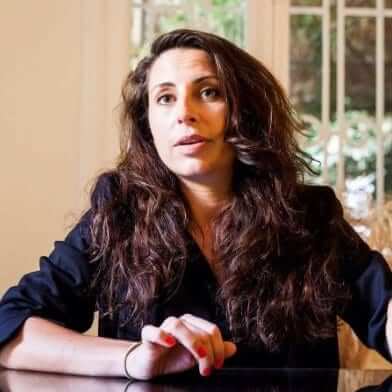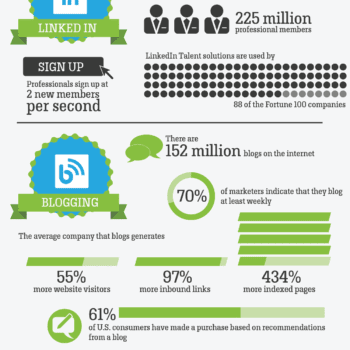(Women on Top in Tech is a series about Women Founders, CEOs, and Leaders in technology. It aims to amplify and bring to the fore diversity in leadership in technology.)
Here is our interview with Angela Solomon, a Lebanese-British entrepreneur based in Beirut, who focuses on creating 100,000 jobs for trusted child carers. Angela is the CEO & Founder of Jaleesa & Director of Angela M Solomon Communications.
What makes you do what you do?
Jaleesa’s mission is to help women work. We believe that a strong business can be built around social impact. I want to show that the next Google or Facebook can be built with social impact at its heart – not just tacked on later. Childcare is a great way to do that: firstly, it’s something women really need. Secondly, it’s important to support children’s development – and third, it’s something we can all learn to do regardless of our background, as long as we love kids and are committed to doing an excellent job.
I think that getting women working is the great challenge for MENA this century. If more women work, they spend more on their children’s education – and women who work are also more likely to take an active role in society. That’s really important for all of us, male or female.
As a Lebanese-British I grew up in the UK, and I feel very lucky to have had a great education and so many opportunities. I would like to pay some of that forward now I’ve returned to Lebanon.
How did you rise in the industry you are in?
We are still right at the beginning of our journey, so we have a long way to go until I would say I’ve „risen“ anywhere! When I was a student, I taught kids abseiling and climbing, taking responsibility for their safety on the high ropes courses. Later, I became a language teacher. That was great preparation for founding Jaleesa – and this January I completed our First Aid, child development and customer service training, so I am officially a qualified babysitter.
I work with a great founding team and fantastic colleagues who have joined Jaleesa to make our vision become a reality. We got our first support as a startup from AltCity, a Lebanon-based early stage startup incubator. They are an amazing team who have helped us keep growing even after we graduated from their programme. We are now six office staff and almost 50 babysitters – so we’ve been very lucky to work with fantastic people right from the start.
Why did you take on this role/start this startup especially since this is perhaps a stretch or challenge for you (or viewed as one since you are not the usual leadership demographics)?
I founded Jaleesa, with the other two co-founders Stephanie and Hassan, because there is a genuine lack of trusted childcare options for families in Lebanon and in the region.
I guess I play the role I play because I’m crazy enough to work to make the idea into reality. It is a huge challenge – I really want to do my best for Jaleesa and for the team. But I feel really supported by my amazing colleagues. The Jaleesa team is 86% women – but regardless of gender, we all support each other and push each other to do better and better, especially on those tough days when things seem impossible…
Do you have a mentor that you look up to in your industries or did you look for one or how did that work?
I’ve had mentors all through my career, for the past 10 years and more. Now there’s not just one, but a whole bunch of people in my life whom I consider mentors: they’re the people I turn to for advice, or inspiration, or a sense of perspective. Some of them are also great friends, and most of them have been co-opted by stealth rather than through a formal scheme.
How did you make a match if you and how did you end up being mentored by him?
My current mentors are people I really like and admire, who agree to have coffee with me now and then and help me through problems. If you don’t have someone like that, it can be great to ask your friends or colleagues who they would recommend as a mentor for you, or to sign up to a matching scheme through your university or work.
Now as a leader how do you spot, develop, keep, grow and support your talent?
This is a million-dollar question! I do my best to support the people around me, and to use coaching and listening skills when people ask for help or guidance. I try not to give advice: I think usually people are much better placed than me to work out what solutions will work for them. But I like to try and help someone think about a problem in a new way, so they can find their way through.
Do you consciously or unconsciously support diversity and why?
We’re very conscious supporters of diversity. We want people from all backgrounds, with all different skill sets, ages, lifestyles and talents to come together through Jaleesa’s community. We believe in equal opportunities and want to make sure our services and events are accessible to everyone, including people with disabilities. I think our biggest risk is accidentally excluding men – after decades of women’s fight for equality, that’s a great 21st century ‘problem’ to have! We currently have three great male babysitters and work with some fantastic Jaleesa dads as well.
What is your take on what it takes to be a great leader in your industry and as a general rule of thumb?
We are really still at the beginning of the journey and I’m so far from having an answer to this! But I do know that leadership isn’t about being at the top of a hierarchy or achieving success in the eyes of others. I think it’s about creating the space for people around us to excel, and being compassionate to others, in moments of both triumph and tears. Whatever position you’re in, you probably there, thanks to a lot of support from others – so it’s also really important to remember to say thank you to the people who helped you get there, and to pay it forward whenever you can.
Advice for others?
I think it’s really important to decide on your personal values. When I left my previous career, I learned that when you’re on your own (like as a freelancer or an entrepreneur), nobody else is there to define what is and isn’t acceptable. You have to devise your own ways of holding yourself and others to account. So I decided to live by the principles of integrity, passion and honesty. When I have a tough decision to make, I use those principles as a guide. Some days are easier than others, but I do my best.
To learn more about Jaleesa, please see https://jaleesa.co.
I am a huge fan and cheerleader of Women Leaders — If you know of an AMAZING Woman Founder, CEO, Leader in Tech or you are one yourself — Write me here.
AMPLIFY Conscious Business Leadership with me.
This article was co-written with Mariem Khemir.
LinkedIn: https://www.linkedin.com/in/mariem-khemir-36b52a85/































